Gasoline Battery

Are gasoline hybrid cars better for the environment than traditional gasoline cars ?
Gasoline hybrid cars, also known as hybrid electric vehicles (HEVs), are becoming increasingly popular due to their potential environmental benefits. These vehicles produce fewer emissions compared to traditional gasoline cars and have better fuel efficiency. They also use regenerative braking technology, which captures energy normally lost during braking and stores it in the battery, further improving fuel efficiency and reducing emissions. However, gasoline hybrid cars also have drawbacks such as higher upfront cost, limited electric-only range, and potential environmental impacts from battery production and disposal. Traditional gasoline cars, on the other hand, are generally less expensive than gasoline hybrid cars and have a widespread refueling infrastructure. They are also often simpler and more reliable than gasoline hybrid cars. In conclusion, gasoline hybrid cars offer several environmental benefits over traditional gasoline cars, but they also come with drawbacks. The decision between a gasoline hybrid car and a traditional gasoline car depends on individual preferences, priorities, and circumstances.
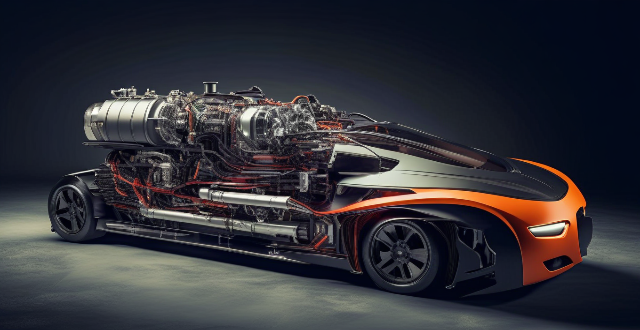
Can I still use gasoline in a gasoline hybrid car ?
Gasoline hybrid cars combine a traditional gasoline engine with an electric motor for improved fuel efficiency and reduced emissions. While they still require gasoline to operate the internal combustion engine, they offer significant savings in fuel costs over time. To maximize fuel efficiency in a gasoline hybrid car, drivers should practice eco-driving techniques, perform regular maintenance, and utilize regenerative braking settings. Gasoline hybrid cars represent a step towards reducing our reliance on fossil fuels and transitioning to cleaner energy sources.

Are electric cars more expensive than gasoline cars ?
Electric cars, also known as EVs, have been gaining popularity due to their eco-friendly nature and lower operating costs. However, the initial purchase price of an electric car is often higher than that of a traditional gasoline-powered car. In this article, we will explore the cost differences between electric and gasoline cars. ## Upfront Cost **Electric Cars:** - Higher upfront cost due to expensive battery technology and limited production scale. - Prices vary depending on the model, brand, and range. - Some governments offer incentives and tax credits to offset the high initial cost. **Gasoline Cars:** - Generally less expensive upfront compared to electric cars. - Wide variety of models and brands available at different price points. - No government incentives or tax credits for purchasing a gasoline car. ## Operating Costs **Electric Cars:** - Lower operating costs due to cheaper electricity rates compared to gasoline prices. - Maintenance costs are generally lower since there are fewer moving parts in an electric motor. - Battery replacement can be costly, but it is not expected until after several years of use. **Gasoline Cars:** - Higher operating costs due to fluctuating gasoline prices and regular maintenance requirements. - More frequent oil changes, tune-ups, and other routine maintenance tasks. - Fuel efficiency varies widely among gasoline cars, affecting overall operating costs. ## Depreciation **Electric Cars:** - Depreciation rate may be higher for electric cars due to rapid advancements in technology and changing consumer preferences. - Some early adopters may experience significant depreciation if they choose to sell their electric car before its battery lifespan ends. **Gasoline Cars:** - Generally slower depreciation rate compared to electric cars. - Well-maintained gasoline cars can retain their value for longer periods. ## Resale Value **Electric Cars:** - Resale value depends on factors such as battery health, range, and charging infrastructure availability. - As more people switch to electric cars, the demand for used electric vehicles may increase, potentially boosting resale values. **Gasoline Cars:** - Resale value is typically more predictable and stable compared to electric cars. - Factors such as fuel efficiency, brand reputation, and vehicle condition affect resale value. In conclusion, while electric cars may have a higher upfront cost, they offer lower operating costs and potentially better resale value in the future. It's essential for consumers to consider both short-term and long-term costs when deciding between an electric or gasoline car.
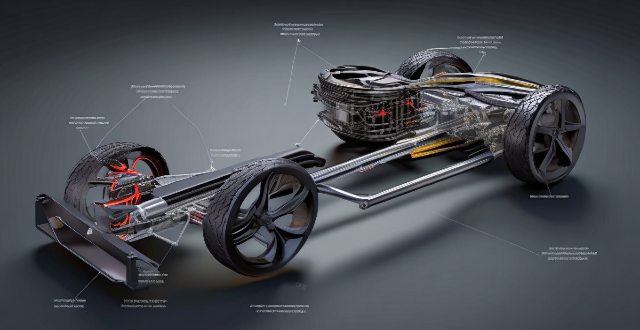
How does a gasoline hybrid car work ?
Gasoline hybrid vehicles, known as HEVs, merge an ICE with an electric motor for enhanced efficiency and reduced emissions. Key components include the ICE, electric motor, battery pack, transmission, and a generator/alternator. These cars can operate in various modes: fully on ICE power, purely electric, combined power, or through regenerative braking. The energy management controller optimizes power distribution for peak efficiency. Benefits of gasoline hybrids include better fuel economy, lower emissions, extended brake life, and potential tax incentives.

Do hybrid cars produce less pollution than traditional gasoline cars ?
Hybrid cars generally produce less pollution than traditional gasoline cars, but the comparison is not straightforward and various factors must be taken into account.
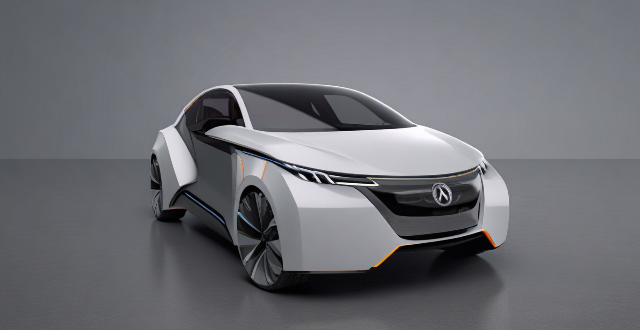
What is the difference between a gasoline hybrid and an electric car ?
The main difference between a gasoline hybrid and an electric car is their fuel source and how they generate energy. Gasoline hybrids run on a combination of gasoline and electricity, while electric cars run solely on electricity. Gasoline hybrids produce lower emissions than traditional gasoline-powered vehicles but still require gasoline to operate. Electric cars produce zero tailpipe emissions but may still result in emissions from electricity production. Finally, gasoline hybrids typically have a longer range than electric cars due to their ability to switch between using gasoline and electricity depending on driving conditions.
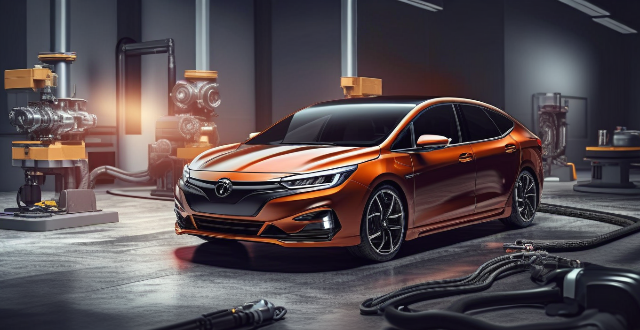
Do gasoline hybrid cars require special maintenance ?
This text discusses the maintenance requirements for gasoline hybrid cars, which combine a conventional engine with an electric motor for added efficiency. While these vehicles do not require extensive special maintenance, there are specific components that need attention. Regular maintenance such as oil changes, tire rotations, brake checks, and air filter replacements are still essential. Additionally, hybrid-specific maintenance includes monitoring battery health, checking the regenerative braking system, ensuring proper cooling of the electric motor, and maintaining transmission fluid levels. It is important to refer to the vehicle's owner's manual for specific maintenance schedules and seek out professional service when needed. By addressing both conventional and hybrid-specific maintenance needs, gasoline hybrid cars can run reliably and efficiently.

Are CHEVs more expensive to maintain compared to regular hybrid vehicles ?
The article discusses the maintenance costs of Chevrolet (CHEV) and regular hybrid electric vehicles (HEVs), which are both designed to reduce fuel consumption and emissions. The powertrain configurations and operational strategies of CHEVs and regular HEVs differ, with CHEVs typically having a larger battery pack and prioritizing using electricity from the battery before switching to gasoline, while regular HEVs use both gasoline and electricity simultaneously or alternate between them based on driving conditions. Regarding maintenance costs, CHEVs may require more frequent battery replacements due to their larger size and higher usage, but their engines may experience less wear and tear since they spend more time in electric mode. On the other hand, regular HEV engines may require more maintenance due to constant switching between gasoline and electric power, but they generally have smaller batteries that last longer. In terms of transmission maintenance, CHEV transmissions may be simpler since they rely primarily on electric motors, while regular HEV transmissions may be more complex due to the need to manage both gasoline and electric power sources. Tire maintenance may also differ between CHEVs and regular HEVs, with CHEV tires potentially wearing differently due to regenerative braking systems, while regular HEV tires may not experience significant differences in wear patterns compared to traditional gasoline vehicles. Overall, while CHEVs may have higher initial costs due to their larger battery packs, they could potentially save money in the long run by reducing engine maintenance needs. However, regular HEVs might require less frequent battery replacements and simpler transmission maintenance. It is essential to consider individual driving habits and vehicle usage when evaluating maintenance costs for CHEVs and regular HEVs.

What are the benefits of a gasoline hybrid engine ?
The article discusses the advantages of a gasoline hybrid engine, which is a combination of a traditional internal combustion engine and an electric motor. The benefits include improved fuel efficiency through reduced fuel consumption, regenerative braking, and start-stop technology; lower CO2 emissions and decreased pollutants resulting in cleaner air quality; and enhanced performance with instant torque, smooth driving experience, and extended brake life due to regenerative braking. Overall, gasoline hybrid engines provide a balance between power and efficiency, making them an attractive option for eco-conscious drivers.

How do power batteries compare to traditional gasoline engines in terms of cost and efficiency ?
Power batteries and traditional gasoline engines are two different types of energy sources that are used to power vehicles. In this article, we will compare the cost and efficiency of power batteries and traditional gasoline engines. Power batteries have a higher initial cost than traditional gasoline engines, but require less maintenance and have lower fuel costs. They also have a higher energy conversion efficiency and can recharge through regenerative braking. However, they have a limited range compared to traditional gasoline engines. Traditional gasoline engines have a lower initial cost than power batteries, but require more maintenance and have higher fuel costs. They also have a lower energy conversion efficiency and cannot recharge through regenerative braking. However, they have a longer range than power batteries. Overall, while power batteries have a higher initial cost and limited range compared to traditional gasoline engines, they offer several advantages in terms of cost and efficiency. As technology continues to advance, it is likely that power batteries will become even more cost-effective and efficient compared to traditional gasoline engines.

How do parallel hybrid electric vehicles (PHEVs) compare to traditional gasoline cars in terms of performance ?
Parallel Hybrid Electric Vehicles (PHEVs) offer better acceleration and fuel efficiency than traditional gasoline cars but may have lower top speeds and require more time for recharging. Gasoline cars have higher top speed capabilities and quicker refueling but are less efficient and require more maintenance. The choice between the two depends on individual needs and preferences.

How much more expensive is a gasoline hybrid car compared to a regular gasoline car ?
The cost difference between a gasoline hybrid car and a regular gasoline car can vary depending on several factors such as brand, model, features, and location. However, in general, gasoline hybrid cars tend to be more expensive than regular gasoline cars. Here are some key points to consider: - Gasoline Hybrid Cars: These vehicles typically have a higher initial cost compared to regular gasoline cars due to the additional technology required for the hybrid system. The price difference can range from a few thousand dollars to over $10,000, depending on the make and model. One of the main advantages of gasoline hybrid cars is their improved fuel efficiency. They use both gasoline and electricity to power the engine, which results in better mileage and lower fuel costs over time. While gasoline hybrid cars may have higher repair costs due to their complex systems, they often require less maintenance overall because the electric motor helps reduce wear and tear on the engine. As awareness of environmental issues grows, so does the demand for eco-friendly vehicles like gasoline hybrid cars. This increased demand can help maintain or even increase their resale value over time. - Regular Gasoline Cars: These vehicles are generally less expensive upfront as they do not require the same advanced technology as hybrid cars. These vehicles rely solely on gasoline for power, which can lead to higher fuel consumption and expenses, especially if you drive long distances or frequently idle in traffic. These vehicles may have lower repair costs initially but may require more frequent maintenance, such as oil changes and tune-ups, due to their reliance on a single power source. The resale value of regular gasoline cars may decline faster than that of hybrid cars, especially as more buyers seek out fuel-efficient options.
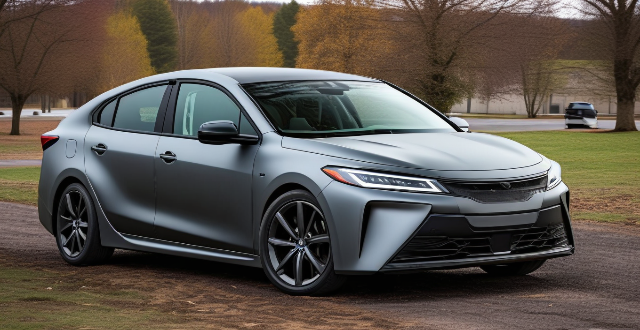
How do gasoline hybrid cars perform in cold weather ?
Gasoline hybrid cars' performance in cold weather can be affected by reduced battery capacity, thicker engine oil, and decreased tire traction. Proper maintenance and adjustments to driving habits are crucial for safe and efficient operation during the colder months.
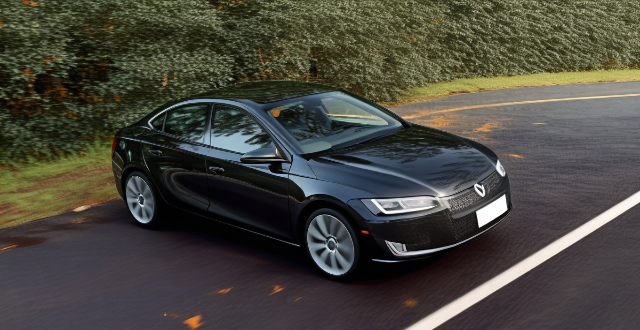
How far can a gasoline hybrid car travel on a full tank of gas ?
The text discusses the fuel efficiency and range of gasoline hybrid cars on a full tank of gas. Factors affecting fuel efficiency include driving habits, traffic conditions, vehicle maintenance, and weather conditions. Gasoline hybrid cars typically have higher fuel efficiency ratings than traditional gasoline-powered cars due to their combination of an electric motor and a gasoline engine. The estimated range of many gasoline hybrid cars is around 300-500 miles on a full tank of gas, with some having larger fuel tanks or higher fuel efficiency ratings allowing for greater ranges. Maximizing fuel efficiency can be achieved by considering factors such as driving habits and vehicle maintenance.
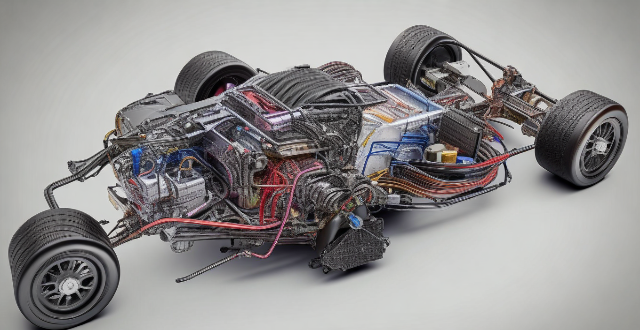
How do electric cars compare to hybrid cars ?
Electric cars run solely on electricity and produce zero emissions, while hybrid cars combine a gasoline engine with an electric motor for improved fuel efficiency. Electric cars offer environmental benefits and lower operating costs but have limited range and long charging times. Hybrids provide a balance between gasoline-powered vehicles and electric cars, with improved fuel efficiency and no range limitations but still rely on gasoline and produce emissions. The choice between the two often depends on individual needs and preferences.
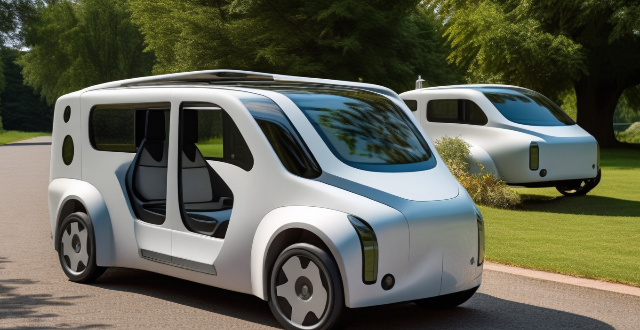
How do CHEVs compare in performance to fully electric vehicles ?
Chevrolet's hybrid electric vehicles (CHEVs) and fully electric vehicles (EVs) offer unique benefits and drawbacks. CHEVs have a longer range than EVs because they use both gasoline and electricity to power the vehicle, while EVs rely solely on electricity to power the vehicle. CHEVs are more efficient than traditional gasoline-powered vehicles, but less efficient than EVs. EVs are the most efficient type of vehicle because they produce zero emissions and use less energy than CHEVs. CHEVs typically have slower acceleration times than EVs due to their reliance on both gasoline and electricity, while EVs have faster acceleration times because they rely solely on electricity to power the vehicle. CHEVs require less maintenance than traditional gasoline-powered vehicles, but more maintenance than EVs. EVs require very little maintenance compared to CHEVs and traditional gasoline-powered vehicles.
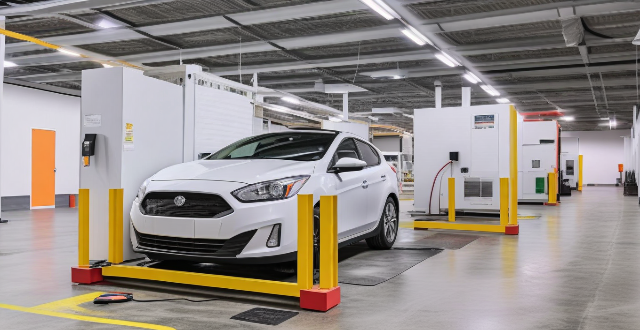
How does an electric car work ?
Electric cars, or EVs, are powered by electricity stored in a battery pack, which is used to power an electric motor that turns the wheels. The process includes starting the car with power from the battery to the controller, which then sends electricity to the motor for acceleration. Braking involves regenerative braking that captures energy to recharge the battery. Charging the battery requires plugging into an external power source managed by an onboard charger. Electric cars boast higher energy efficiency, lower operating costs, reduced environmental impact, quieter operation, and simpler maintenance compared to traditional gasoline vehicles.
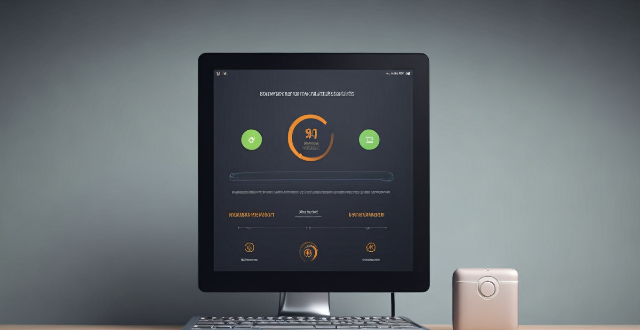
Will a screen protector affect my iPhone's battery life ?
A screen protector does not directly affect an iPhone's battery life, but certain types may have indirect effects. To optimize battery life, users should adjust screen brightness, turn off unnecessary features, use power-saving modes, regularly update software, monitor app usage, maintain proper storage space, replace old batteries, and seek professional help when needed.

How can I maximize the lifespan of my lithium battery ?
Lithium batteries are widely used in various devices, from smartphones and laptops to electric vehicles. To ensure that your lithium battery lasts as long as possible, it's essential to follow some best practices for charging, storing, and using the battery. Here are some tips to help you maximize the lifespan of your lithium battery: 1. Avoid Overcharging 2. Maintain Proper Charging Levels 3. Store at Optimal Temperatures 4. Manage Battery Use 5. Software Updates 6. Physical Care

Can a car charger damage my phone's battery ?
Using a car charger to charge your phone is generally safe and does not cause any damage to the battery when used correctly. By following the tips mentioned above and being mindful of the quality of the car charger and the health of your phone's battery, you can protect your device and ensure its longevity.

Are hybrid cars safe in an accident ?
Hybrid cars are generally as safe as traditional cars in accidents, featuring multiple safety measures like battery pack protection and automatic disconnection of high voltage systems. However, potential risks include battery fires and electric shocks, which manufacturers mitigate through advanced cooling systems and rapid de-energizing upon impact. Repair costs for hybrid systems can be higher due to specialized parts and labor requirements.
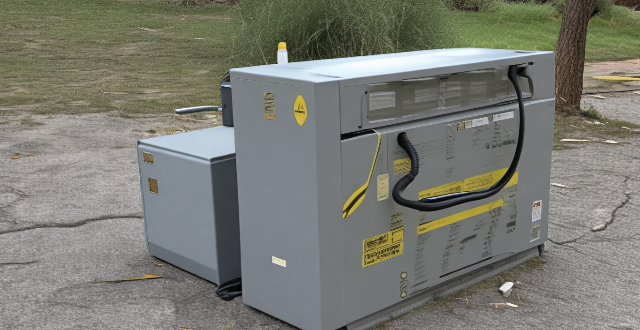
In what ways can we improve rechargeable battery efficiency ?
Improving rechargeable battery efficiency involves using high-quality chargers, avoiding complete discharges, storing at optimal temperatures, using fast charging techniques sparingly, and maintaining proper battery care. These practices help maintain battery health, ensure efficient charging, prevent damage, and extend the battery's lifespan.

How does a lead-acid battery work ?
Lead-acid batteries work on the principle of converting chemical energy into electrical energy and vice versa. They consist of an electrolyte, plates, and separators. During charging, an external power source applies a voltage higher than the open-circuit voltage of the battery, causing lead sulfate on the positive plate to be converted back into lead dioxide and on the negative plate into metallic lead. During discharging, when a load is connected to the battery, lead dioxide on the positive plate is reduced to lead sulfate, and metallic lead on the negative plate is oxidized to lead sulfate. The electrons flow from the negative terminal of the battery to the load during discharging and from the positive terminal of the external power source to the positive plate of the battery during charging.

Can you recharge a dead lead-acid battery ?
Recharging a dead lead-acid battery is possible, but it depends on the condition of the battery and how long it has been discharged. Here are some steps to follow when attempting to recharge a dead lead-acid battery: Check the battery's condition, determine the battery's voltage, choose the right charger, connect the charger to the battery, monitor the charging process, and test the battery after charging. In summary, recharging a dead lead-acid battery is possible as long as the battery is in good condition and the correct charging procedures are followed.

How long does the battery last on AirPods ?
The battery life of AirPods is an important feature that users consider before purchasing. Apple has designed AirPods to provide a long-lasting battery life, making them convenient for extended use throughout the day. The original AirPods have a battery life of up to 5 hours of listening time on a single charge, while the AirPods Pro offer slightly better battery life with up to 4.5 hours of listening time on a single charge. To maximize the battery life of your AirPods, you can turn off Automatic Ear Detection, lower the volume, use one AirPod at a time, store your AirPods in their charging case when not in use, and keep your AirPods and charging case clean.

What is the lifespan of a lithium battery ?
The lifespan of a lithium battery is affected by various factors such as the type of battery, usage patterns, and environmental conditions. In general, most lithium batteries have a lifespan of 2-3 years or 300-500 charge cycles, whichever comes first. However, this can vary significantly based on the specific application and usage patterns. Different types of lithium batteries have different lifespans. For example, Lithium-ion batteries typically have a longer lifespan than Lithium-polymer batteries. Additionally, some newer types of lithium batteries, such as solid-state batteries, may have even longer lifespans than traditional lithium-ion batteries. How you use your lithium battery can also affect its lifespan. For example, if you frequently charge your battery to 100% and then discharge it completely, this can shorten its lifespan compared to if you only charged it to 80% and discharged it to 20%. Similarly, if you frequently expose your battery to high temperatures or cold temperatures, this can also shorten its lifespan. Finally, the environmental conditions in which your lithium battery is stored and used can also affect its lifespan. For example, if you store your battery in a hot or humid environment, this can shorten its lifespan compared to if you store it in a cool, dry environment. Similarly, if you frequently expose your battery to extreme temperatures or humidity levels while using it, this can also shorten its lifespan. To maximize the lifespan of your lithium battery, there are several things you can do: * Avoid exposing your battery to extreme temperatures or humidity levels. * Try to keep your battery's charge level between 20% and 80% as much as possible. * Use a high-quality charger that is designed specifically for your type of lithium battery. * If possible, try to use your device's built-in power management features to help regulate charging and discharging patterns.

How does 5G affect battery life in smartphones ?
With the advent of 5G technology, concerns have arisen about its impact on smartphone battery life. In this article, we explore how 5G affects battery life and provide strategies for conserving battery while still enjoying the benefits of 5G speeds. First, we define 5G as the fifth-generation wireless technology that promises faster data transfer speeds, lower latency, and greater connectivity than its predecessor, 4G LTE. However, the higher frequency bands used by 5G require more energy to transmit and receive signals compared to 4G. Additionally, the increased number of small cell sites needed for 5G coverage also requires more power to operate. Second, we discuss how 5G can affect battery life through increased data consumption and higher power consumption. With faster speeds and improved connectivity, users are likely to use their devices more frequently and for longer periods of time, leading to a drain on the battery. Furthermore, network management issues may cause unnecessary strain on the battery. Third, we provide strategies for conserving battery life when using a 5G network. These include turning off unnecessary features, using low power mode, optimizing screen settings, and updating your device regularly. By implementing these strategies, you can help extend your device's battery life while still being able to take advantage of 5G speeds.

Which fitness tracker has the longest battery life ?
When it comes to choosing a fitness tracker, battery life is an important factor to consider. A longer battery life means less frequent charging and more time spent focusing on your fitness goals. In this article, we will explore which fitness tracker has the longest battery life. The Garmin Fenix 6 Pro is a popular choice for outdoor enthusiasts and athletes. It boasts an impressive battery life of up to 14 days, depending on usage. This makes it a great option for those who spend long periods of time away from home or on extended trips. The Fitbit Charge 4 is a versatile fitness tracker that offers a range of features, including built-in GPS, heart rate monitoring, and sleep tracking. Its battery life is also quite impressive, with up to 7 days of use on a single charge. The Amazfit GTR 2 is another fitness tracker that offers a long battery life, with up to 14 days of use on a single charge. It also features a sleek design and a range of health and fitness tracking options. The Xiaomi Mi Band 6 is a budget-friendly fitness tracker that still offers a respectable battery life of up to 13 days. It includes features such as heart rate monitoring, sleep tracking, and stress monitoring. While all of these fitness trackers offer impressive battery life, our top pick for the longest battery life is the Garmin Fenix 6 Pro. With its rugged design and advanced sports metrics, it is ideal for outdoor enthusiasts and athletes who require a reliable and durable fitness tracker that can keep up with their active lifestyles.

How often should I charge my iPhone to maintain optimal battery health ?
Maintaining optimal battery health for your iPhone involves avoiding full discharges, charging regularly, using official Apple accessories, and not worrying about overnight charging. By following these tips, you can help prolong the lifespan of your iPhone's battery and ensure that it performs at its best for as long as possible.